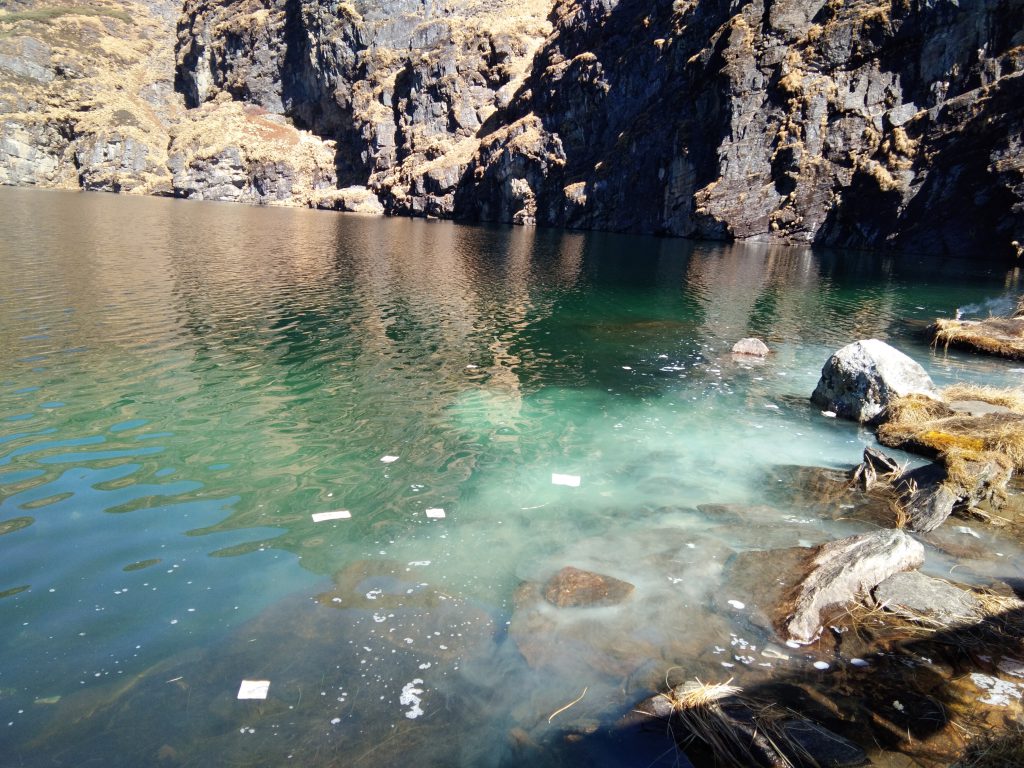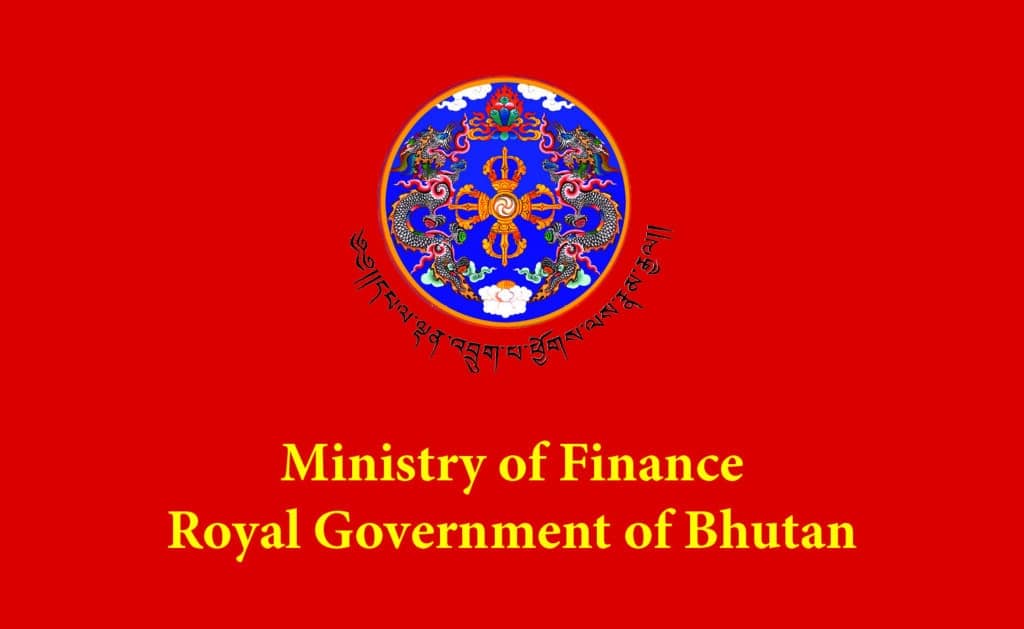Flouting rules that limit religious gatherings, worshipers pour milk and throw money in the Tsho
It is almost a four-hour uphill-walk from Phajoding monastery to reach Dungtsho.
Dungtsho is around 3,000-4,000m above sea-level in the Phajoding Valley, which has a large concentration of small and large glaciers. It is approachable through two different routes – via Bjemena in south and Sangaygang in north-east Phajoding. Both are narrow tracks snaking through a stunning landscape and mostly flanked by steep cliffs.
To get to the cave, devotees have to brave several hardships, which include harsh sun at high altitude, oxygen deficiency and unpredictable weather.
Ap Tshering, 40, is exhausted walking in the sun. He wipes the sweat off his face and removes his cap as he reaches the Tsho (Lake).
He takes out two packets of milk from his bag and some cash. He prays for a while and pours the two packets of milk into the tsho while offering some cash (Nyendar) in the tsho. He relaxes engrossed in taking pictures with his phone.
Like Ap Tshering, many visitors believe that pouring milk and throwing cash is a common worshipping act to lakes as inhabited by lake deities (Tsho-mem) and cliffs where cliff deities reside.
Another worshipper, Ap Karma and his wife Wangmo said pouring milk in the lake signifies an offering to Tsho- mem and other species in the lake and money as Nyendar to purify our evil deeds.
There has been a steep rise in the number of visitors to the tsho in recent days. According to the monk, data indicates that the number of worshippers has increased from 80 to120 in a month.
Threats
Dungtsho should be kept clean and natural, according to a monk who is busy explaining about the religious place. “Visitors are not willing to listen to us, despite giving them directions,” he said, adding that pouring milk and throwing money have been common practice now.
“We don’t encourage visitors to pour milk and offer cash in the lake,” the monk said.
According to a Royal Monetary Authority official, if money is destroyed (taken out of circulation) and not put back in by the Central Bank, then the overall money supply in the economy will fall. “There will be less money circulating. Prices will tend to fall, and the value of the remaining money increases,” he said.
“Throwing money in the lake doesn’t make sense,” he said, adding that if we collect the money from the lake and use it, it will be put back into circulation.
The official added that if tearing money is illegal as per the law of Bhutan, throwing money which will stop circulation can be also illegal. “Any damage caused to currency notes and coins by tearing, burning, writing and drawing lines on them will be illegal,” he said.
According to an official from the National Environment Commission (NEC), pouring milk and throwing cash into the lake is prohibited. “Such a lake should be kept natural,” he said, adding it is not so much that they are directly toxic to fish and water life as it is that they extract the oxygen out of the system to the extent that, in serious cases, all affected marine life will die as a consequence.
“The NEC even notified not to keep prayer flags near lakes and rivers but we can see most of the lakes have been surrounded with prayer flags, so, we are planning to make protocols and penalties,” he said.
He added that throwing coins in the lake is not an act of merit because it is as good as throwing a non bio-degradable waste; but somehow, the belief is deeply entrenched in the Bhutanese culture.
Kinley Yonten from Thimphu














